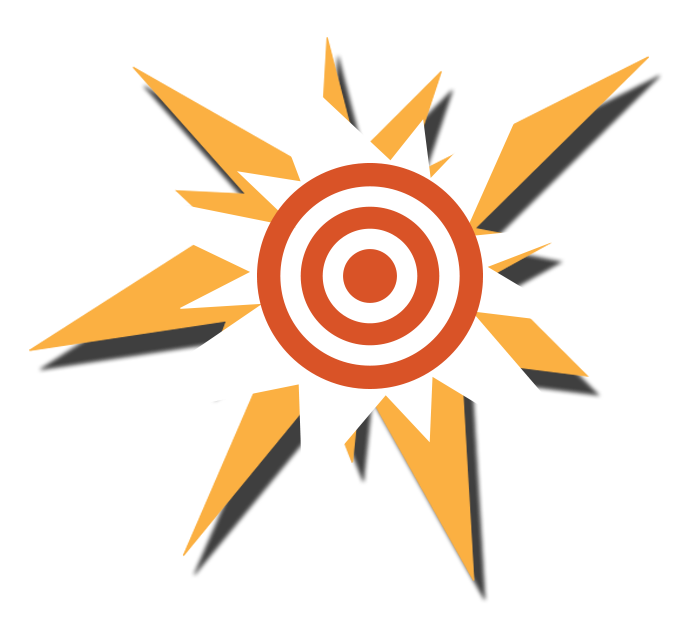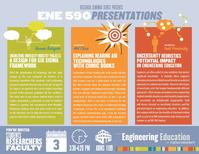Seminar: ENE 590 Summer Class Presentations
| Event Date: | September 3, 2015 |
|---|---|
| Speaker: | Bunmi Babajide |
| Speaker Affiliation: | ENE graduate student |
| Time: | 3:30-4:20pm |
| Location: | ARMS 1109 |
| Priority: | No |
| College Calendar: | Show |
 Watch Presentation (Audio and PPT)
Watch Presentation (Audio and PPT)
Ethnographic Methods in Engineering Education
Presented by Natascha Trellinger
What are ethnographic methods and how can they be used in engineering education research? In this ENE590, ethnographic methods appropriate for education research were explored both through literature and first-hand experience. This talk discusses the methodological considerations of ethnographic interviewing and observing, describes example successful research projects, and gives tips for appropriate use of the methods in engineering education research.
![]()
Engineering University-Industry Projects: A Design for Six Sigma Framework
Presented by Bunmi Babajide
As the world’s economy becomes global, graduate workforce readiness is increasingly necessary. There has been a gradual shift in industry expectations of graduates from exhibiting academic expertise in a chosen discipline to a commercially adroit candidate with a strong command of, and immediate ability to apply, a broad range of skills deemed essential in the workplace. With the globalization of technology and the rapid changes in the way companies do business, it is becoming imperative that graduates start performing and processing from their first day on the job. Design for Six Sigma (DFSS) is an approach that can be helpful in pushing towards better-prepared graduates for the workforce. This study aims to use current student project work to analyze preparedness, particularly in terms of students’ abilities to organize and communicate their thoughts. Preliminary findings show that more needs to be done in institutions of higher education to align the process of executing projects in universities with what is widely employed in industry.

Explaining Hearing Aid Technologies with Comic Books
Presented by Mel Chua
Explanations of how hearing aids work usually fall into one of two categories. The first is dense technical research that assumes you are a professional in the field. On the other extreme, there are customer brochures with pictures of puppies and smiling elderly people, explaining how you will have "improved sound clarity." (That is the actual level of technical detail they go into; I am not summarizing.) There is not much in between for the intelligent layperson who wants to understand hearing technologies. For my 590, as an experiment in bridging the technical communication gap, I read the research papers and drew short comic books with explanations I wished I'd had when getting hearing aids 3 years ago.

Uncertainty Heuristics Potential Impact on Engineering Education
Presented by Todd Fernandez
Engineers are often asked to solve problems that involve significant uncertainty. As students, those engineers educational experience likely focused heavily on analytical approaches such as modeling (Lesh & Doerr, 2003; Gainsburg, 2006) to confront uncertainty. However, other types of uncertainty exist that require fundamentally different approaches. What remains unstudied is how engineering students identify situations in which analytical approaches to uncertainty are definitionally inappropriate. Prior work by Sarasvathy (2008) explores one way in which expert entrepreneurs solve problems with non-predictable types of uncertainty. Whether students employ such techniques is still unknown. How students select and apply heuristics and methods to deal with uncertainty speaks to whether they are selecting problem solving methods situationally (i.e. based on the underlying problem type) or contextually (e.g. whether the problem is one of electrical engineering or business).
Todd's presentation will discuss research on uncertainty heuristics and the potential impact on engineering education. In addition, this seminar will discuss the benefits of structured writing goals as part of an ENE independent study during his first summer as an ENE PhD student.

